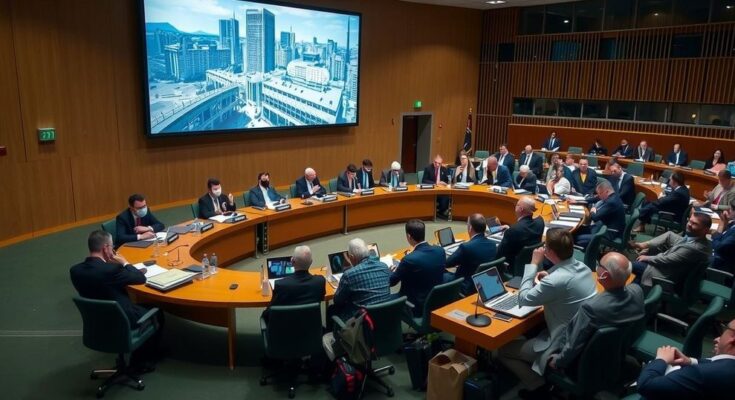Countries at COP29 are under intense pressure as they enter the last day of discussions without any significant progress on climate finance. Richer nations are expected to commit at least $1 trillion to assist developing countries affected by climate change. However, frustrations are high due to the lack of concrete financial pledges in recent draft agreements, complicating negotiations on fossil fuel reductions and adaptation strategies.
At the United Nations climate summit, COP29, which is being held in Baku, Azerbaijan, participating countries find themselves in a challenging position as they approach the final scheduled day of discussions without any substantial financial agreement. The summit has primarily focused on the urgent need for climate finance, specifically the commitment from wealthier nations to provide at least $1 trillion to developing countries. This funding is intended to address damages from extreme weather events and to support adaptation efforts amid climate change. However, recent draft texts have generated frustration among developing nations due to their almost complete omission of specific financial commitments.
The failure to secure concrete financial pledges has led to increased tensions, particularly as representatives from developing countries expressed their discontent. Juan Carlos Monterrey Gomez from Panama and Esa Ainuu from Niue highlighted the dire implications for vulnerable nations, articulating the sense of betrayal they feel regarding the absence of clear financial figures. Moreover, the lack of meaningful proposals for reducing fossil fuel dependency has been criticized by delegates from the United States and Germany. COP29 President Mukhtar Babayev has encouraged all parties to work diligently towards a resolution before the summit concludes.
The climate finance framework is critical for addressing climate-related damages, especially given the vulnerabilities of developing nations which are disproportionately affected by climate change. The historical responsibility of wealthier nations for emissions and their economic advantages leads to expectations for financial rectification. The ongoing talks at COP29 hinge not only on fossil fuel reduction commitments but also on securing essential funding to bolster the resilience of the most impacted countries. The summit’s outcomes will significantly influence global climate policy and the future of international climate finance agreements.
In summary, the ongoing negotiations at COP29 have yet to yield the anticipated financial commitments needed to support developing nations facing climate change hardships. The backlash from vulnerable states regarding the lack of financial figures underscores the urgency for developed countries to take their obligations seriously. Moving forward, it is crucial for the summit participants to reach a consensus that aligns with the severity of the climate crisis and ensures equitable financial distributions to mitigate its impacts.
Original Source: apnews.com




